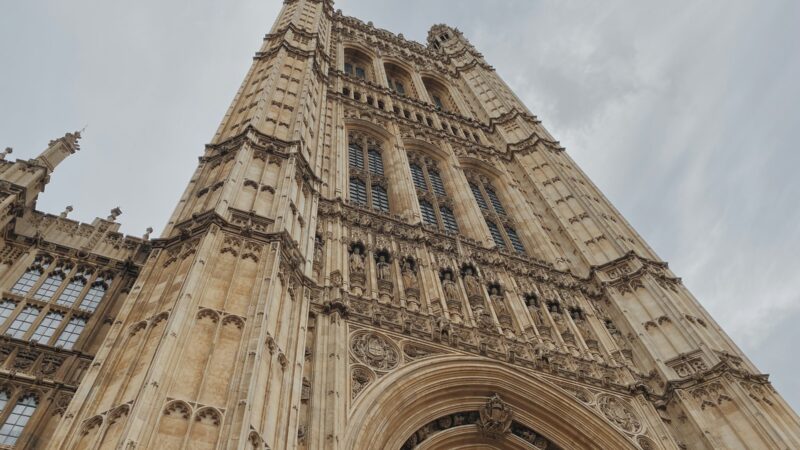The purpose of this short enquiry is into the significance that Immanuel Kant’s essay, “An Answer to the Question: What is Enlightenment?” (1784) played in the development of political thought. It is widely known and remarked upon that the Answer is a major intervention in the apotheosis of the Enlightenment, and its remarkable brevity has provided great philosophical inspiration. My concern here, however, is the specifically political implications of Kant’s observations and the wider Enlightenment (Aufklärung in Kant’s native German). The fact that German is the original language might seem a minor point, but in reality is the central issue to my enquiry: German is famously difficult to translate directly into English, the most common philosophical examples being Geist (Hegel) and dasein (Heidegger). Kant is, quite obviously, not spared this.
The opening lines remark that Enlightenment is “man’s emergence from his self-imposed immaturity”. Immediately we are faced with a semiotic problem: some translations of Kant’s phrase are “self-imposed nonage”, whilst some also use the more evocative minority. In this sense, “immaturity/nonage/minority”, might seem interchangeable but in the history of political ideas hold varying degrees of weight: immaturity is the most commonly used term because of its relationship to the wider Enlightenment’s project of reason, rationality and clarity of thought, which is a state of achievement of the intellect. Nonage and minority, however – which is the chosen translation of Columbia University and, as Mary J. Gregor shows, was Kant’s intended meaning – mean more specifically a state of dependence, as Kant quickly moves onto, arguing that it is the “inability to make use of one’s own understanding without direction of another”.
The reason minority is more appropriate than immaturity is that the latter implies a lack of critical faculties, whereas the former implies a denial of their existence. It is not that “man” or “the human” cannot make use of rational thought, but that he is not allowed to do so – in a state of self-imposition, of course. Kant is not claiming that the human race has been enslaved, but that it has thus far displayed a “lack of resolution and courage” to use its own powers of intellect. None of this is particularly original or insightful commentary: indeed, Kant deals with it in the first paragraph of the Answer. What matters, however, is the historical context of political thought which was inevitably in the back of Kant’s mind.
As the Answer moves on, Kant claims that it is unlikely individuals in their own lives will be able to embrace this rational freedom fully, and that those who do will “only make an uncertain leap over the narrowest ditch”. Kant directs, instead, his call to courage to “a public” (ein Publikum) which has made the mistake of allowing its thinking to be done by a minority (and here the word is specifically denoting a numerical minority) and not itself. “Publikum” offers another linguistic indeterminacy, unfortunately, on both sides of the linguistic barrier: in translation, for instance, “publikum” might mean people, or public, or audience; in English, meanwhile, ‘people’ might mean several individuals, a single mass, a multitude, a greater entity than merely the sum of those alive, and so on. Here, we can reasonably assume, due to Kant’s context, he means “the public” in the pre-democratic tradition, of the wider numbers of individuals who are not “fit to rule”.
It is this proto-democratic move that makes Kant so significant, and his comment on “minority” often passed over by political theorists. To understand why, we must take a brief detour to the medieval jurists. In late-twelfth and early-thirteenth century England, there arose the idea of a specifically public realm that belonged not to the King, but to the wider entity of the public world; again, not public in the sense of the multitude of undifferentiated people, but the “eminent domain” that, as Ernst Kantorowicz observed, belonged to the continuity of a domain whose matters”touched all”.
At the same time in history was the slow transference of ideas from the religious to the secular, specifically the application by Baldus de Ubaldis of St. Augustine’s idea of the “mystical body” (corpus mysticum) of the Church, to the public, using the same terminology – a corpus populus mysticum, a mystical public body. The first, emergence, and then alignment of the public with the “political realm” is significant when we read Kant’s appeal to the public, as he was speaking to a surprisingly recent development of political thought, which was still much-resisted by monarchs and republics across Europe (it is important to remember ‘republic’ and ‘democracy’ are not synonymous).
Before understanding Kant’s significance fully, however, there was another major development by Baldus that requires explanation: the idea of the public as a legal minor. Indeed, “the public” was more a legal creation than anything else, but its legal definition and status was as yet undetermined. As Joseph Canning details, Baldus argued in the fourteenth century, that the populus could not possess a “legally valid will”, as it was incapable of acting entirely on its own. Instead, it “acts and wills” through its representative: the King (as in a monarchy) or council (as in a city-republic), whose actions are taken as synonymous with the realm. It was following a rediscovery of a Roman Law Edict, moreover, that the legal terminology which anticipated Baldus’ claim arose in the thirteenth century. This Edict observed that those people “under the law” were “madmen, children, and cities”. The conflation with children and madmen implied that a public had no mental maturity that would allow it to govern alone. It did not merely require a King – it depended on one.
This is why Kant’s use of the word “minority” holds so much significance in the history of political thought up to the Enlightenment; Kant directly and boldly refuted the very basis of anti-democratic thought, by claiming that man – in the public sense – was not a minority but in fact did possess the rational intellect capable of making its own choices and, therefore, ought to be given the freedom to exercise that intellect.
There is, however, a short comment to make in conclusion. Kant’s proto-democratic claims did not prevent the nineteenth century thinker, John Stuart Mill, from making the argument that whilst some “publics” (to use Kant’s term) had achieved maturity, others had not – and it was therefore the responsibility of the mature publics to guide the immature publics to civilisation in a benevolent imperialism that, illiberally enough, would influence the imperial project for the rest of its existence. As Jennifer Pitts makes clear, in Mill’s eyes, “progressiveness, the cardinal human quality, was also the monopoly of a select group of societies”.



